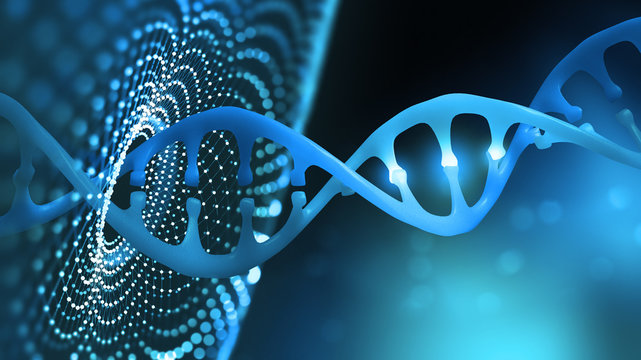Introduction
The Global Artificial Intelligence In Bioinformatics Market is projected to grow substantially, with estimations suggesting it will reach a value of approximately USD 131.5 Million by 2033, up from USD 3.8 Million in 2023. This growth is anticipated to occur at a robust (CAGR) of 42.6% during the forecast period spanning from 2023 to 2033.
Artificial intelligence (AI) is revolutionizing the bioinformatics sector by analyzing vast amounts of biological data. It automates complex tasks, enhancing efficiency and enhancing outcomes in medicine, drug development, and personalized healthcare. AI’s role in bioinformatics is to predict protein structures, analyze DNA sequences, and identify drug targets, ultimately driving improvements in healthcare and biotechnology.
Segmentation of the Artificial Intelligence In Bioinformatics Market
The services segment in the bioinformatics industry, accounting for 58.2% of the market share in 2023, offers specialized skills in applying AI technology to bioinformatics. This includes algorithm development, tool integration, consultation, data analysis, and model training. The complexity of AI and the need for extensive knowledge make this segment critical for firms seeking effective AI solutions.
The machine learning sector dominates the bioinformatics market, accounting for over 50.1% in 2023. This is due to its diverse applications and maturity compared to deep learning. Academic institutions widely use machine learning for bioinformatics research, as it can handle sophisticated data analysis and drive critical activities. This technology’s ability to drive industry growth and sustain progress is expected in the coming years.
The bioinformatics market uses AI in knowledge management tools, platforms, and services. In 2023, the bioinformatics services segment held the largest market share, accounting for over 60.1% of total revenue. This is due to the rapid development of AI technologies and the growing need for specialized knowledge. Bioinformatics services provide expertise and tools for handling complex data, driving the growth of this segment.
The Medical Biotechnology segment, with a 38.4% market share, is a key player in the bioinformatics market. AI aids in reducing development costs, a crucial factor in creating new medications. It aids in discovering therapeutic agents, predicting drug safety and effectiveness, and developing innovative pharmaceutical formulations. This enables biotechnology and pharmaceutical companies to bring more affordable medications, driving market growth and enhancing drug development.
AI in the bioinformatics market is categorized into various applications like Genomics, Systems Biology, Chemoinformatics, Transcriptomics, Metabolomics, Microarrays, Text Mining, Proteomics, and DNA Sequencing. The Genomics segment, which holds a 26.2% market share in 2023, is crucial due to its advantages in personalized therapies and the large amount of genomic data generated by next-generation sequencing technologies, enabling more precise and tailored treatments for patients.
Growth Factors of the Artificial Intelligence In Bioinformatics Market
- Rising Demand for Personalized Medicine: There is an increasing focus on personalized medicine, which tailors treatments to individual patients based on their genetic information. AI can analyze vast amounts of genomic data to identify the best treatment options, boosting its application in bioinformatics.
- Expanding Volume of Biological Data: With advancements in technologies such as next-generation sequencing, the amount of biological data generated is growing exponentially. AI tools can efficiently process and analyze this data, making it easier for researchers to extract valuable insights.
- Technological Advancements: Continuous improvements in AI technologies, including machine learning and deep learning, are enhancing the capabilities of bioinformatics tools. These advancements allow for more accurate predictions, faster analyses, and better integration of various data types, such as genomic, proteomic, and metabolomic data.
- Increasing Investment in R&D: Significant investments in research and development by biotechnology and pharmaceutical companies are driving the adoption of AI in bioinformatics. Companies are seeking innovative solutions to improve drug discovery and development processes, which is a primary application of AI in the field.
- Need for Efficient Drug Development: The high costs and lengthy timelines associated with traditional drug development are prompting companies to adopt AI technologies. AI can streamline processes, reduce costs, and enhance the efficiency of drug discovery by identifying potential drug candidates more quickly.
- Growing Importance of Data Analysis: As bioinformatics relies heavily on data analysis, AI’s ability to uncover patterns and relationships within complex datasets is increasingly valued. This capability is essential for advancing research in areas such as genomics and proteomics.
- Collaborations and Partnerships: Collaborations between academic institutions, research organizations, and industry players are fostering innovation in AI applications within bioinformatics. These partnerships often lead to the development of new technologies and methodologies that can propel market growth.
- Rising Awareness and Acceptance: There is a growing awareness of the benefits of AI in bioinformatics among researchers, clinicians, and healthcare providers. This increased acceptance is driving the adoption of AI technologies in various applications, from diagnostics to treatment planning.
Regional Analysis
North America leads the global AI in bioinformatics market with a 45.1% share in 2023. Key market players and advanced services drive growth, while strategic initiatives and technological advancements strengthen North America’s position. However, challenges like skilled labor shortages and the high costs of AI-based platforms could hinder market growth. Addressing these issues is crucial for maintaining North America’s stronghold in the market.
List of Market Segmentation
By Applications
- · Genomics
- · System Biology
- · Chemoinformatics and Drug Design
- · Transcriptomics
- · Metabolomics
- · Microarrays
- · Text mining
- · Proteomics
- · DNA sequencing
Competitive Landscape
- Fios Genomics
- Source BioScience
- Eurofins Scientific
- Thermo Fisher Scientific Inc.
- Insilico Medicine
- Paige Al Inc.
- SomaLogic Operating Co. Inc.
- Sophia Genetics
- QIAGEN
- Strand Lifescience
- Other Key Players


